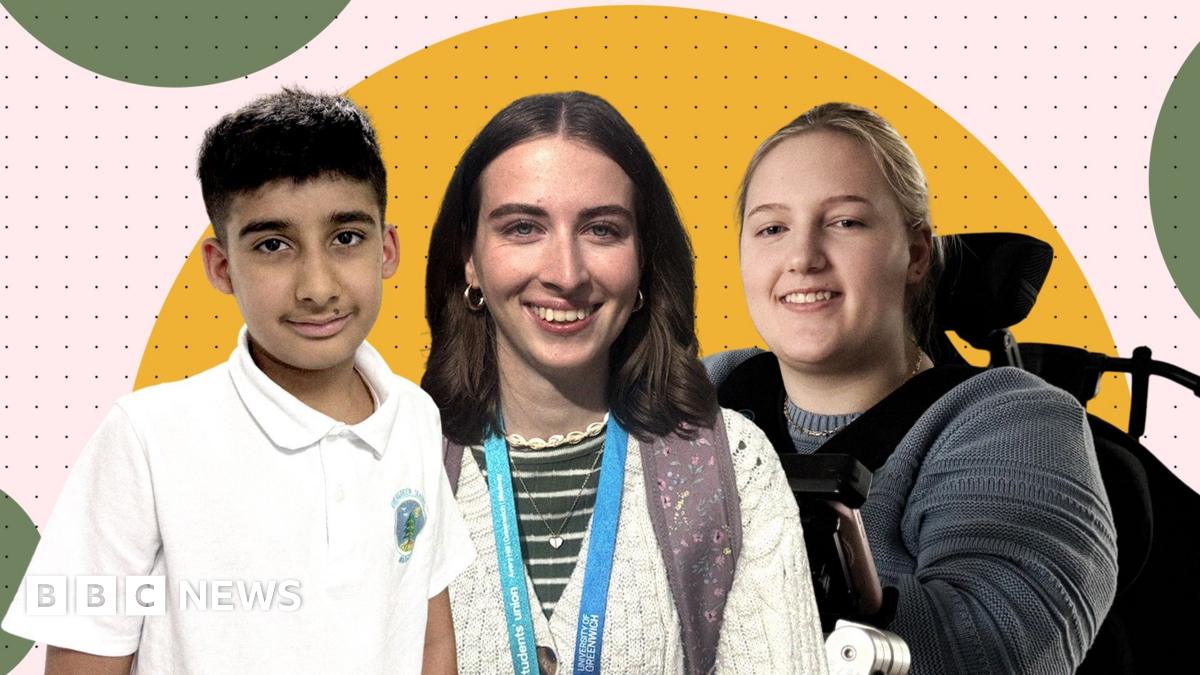Evie, 18, got in touch with the BBC through Your Voice Your BBC News to tell us about her experience of school with special educational needs.
“I’m like a lot of other people my age, but also not,” she tells the BBC from her home in Sheffield.
“I live with a lot of complex disabilities.”
She was diagnosed with autism and ADHD, as well as visual and speech impairments, while at mainstream secondary school. Her mobility also began to rapidly deteriorate.
Her mum, a teacher at the school, was helping her cut up food and make trips to the toilet in between lessons.
By the time she was in Year 10, Evie says her physical needs had become “too much to ask” of the school, and she felt she had no choice but to leave.
But finding a place in a specialist setting wasn’t easy. Evie and her family say they looked at dozens of special schools but couldn’t find a place that could meet both her physical and academic needs.
“There’s a massive gap in the Send system for people like me”, Evie says.
“There were schools that could meet my complex health and mobility needs, but the level of learning was incredibly low.
“There were schools that were able to handle my social and emotional needs and offer higher academic level courses, but they could only handle wheelchair users that didn’t need the level of care I did.”
The result was that Evie spent three years at home, not getting an education.
“It was really lonely, the world carried on while I was stuck at home,” she says.
Evie eventually found a place at a specialist college. She’s studying for her GCSEs in English and maths, as well as a Health and Social Care course.
She wants the government to put more funding into Send and for local authorities to take more responsibility for finding suitable places for young people like her.
“At the end of the day we are just humans who want to thrive, everything shouldn’t be so much of a fight.”

